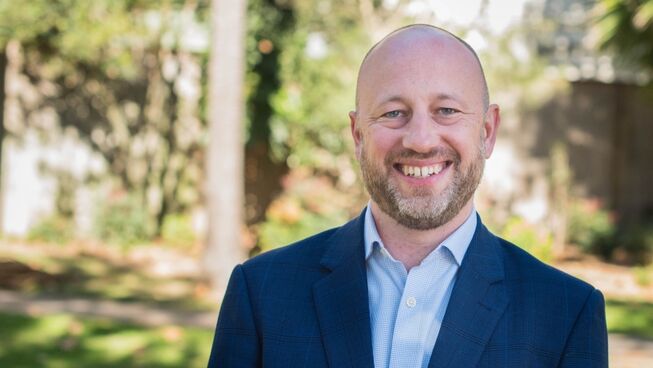When envy rots your work

A few years ago one of the great rivalries of music history was depicted in the film Amadeus. In the opening scene the composer Salieri, now an old man, confesses to a priest his lifetime of hatred toward fellow composer Mozart. Mozart had enjoyed success in his work that Salieri desperately wanted for himself. And now as an old man he remains bitter, filled with anger and hatred towards the man who received the applause and praise for his work that Salieri desperately wanted for his. It’s a picture of the deadly sin envy.
Perhaps the philosopher Aristotle explained envy best when he described it as “pain at the sight of another’s good fortune”. Envy is that feeling of hating, despising, resenting the success of others. But in particular, the success of others that you would love for yourself.
The late Christian author Jerry Bridges explained this feature of envy in his own life. “I am never tempted to envy musicians or artists or highly successful business people. I may admire some of them, but I don’t envy them. Their talents and expertise are completely different from mine, so I don’t tend to compare myself”. [1] However, he goes on to write that the people he does envy are other Christian authors, those who seem to get more invites to speak at conferences, more book sales, more “fame” and “success”.
When envy turns deadly
But envy can go further than this. It not only despises the success of others, but it rejoices when others’ success is lost or impacted. “Envy is often content with not possessing the desired good so long as the other person loses or is diminished in their enjoyment of that good”. [2] In the workplace it can look like rejoicing that a colleague missed out on a promotion or an opportunity, even if we didn’t get it for ourselves.
But envy can go even further, not only rejoicing when harm or loss comes to someone, but actively pursuing their harm. A little bit of gossip. A slanderous word. Inviting someone to retell a story that paints the person negatively. And so with a few simple words, we slowly destroy and undermine the success someone has because we’re envious of it.
The effect of this kind of envy is toxic. As one writer says, “Of all the deadly sins, only envy is no fun at all”. [3] And Proverbs 14:30 puts it like this: “A heart at peace gives life to the body, but envy rots the bones”. Envy eats you out from the inside.
It is envy that is at the heart of the Bible’s first murder (Genesis 4:1-16). Cain kills his own brother Abel because he despises Abel’s “success”, success that he desires for himself. God in His wisdom looks upon Abel’s offering with favour, but not Cain’s, and so Cain is filled with envy. “Cain was very angry, his face was downcast” (Genesis 4:5). Envy rotting the bones. And the result? Envy leads Cain to harm his brother; he kills him. Indeed envy lies behind not only the Bible’s first murder, but also the death of Jesus. “It was because of envy that the chief priests handed Jesus over” (Mark 15:10).
The causes of envy
What lies behind our envy? Two things. Firstly envy reveals what we truly love. We may say with our lips that God is our greatest treasure, but in the moment of envy we are treasuring something else. There is something we so desperately love that we are filled with envy when someone else gets it instead of us. For example, if our work takes pride of place in our hearts then our envy will be around the workplace success of others. If we treasure our reputation then our envy will be around the positive reputation of others. We would do well to ask ourselves these two diagnostic questions: What do you get envious about? And what does that reveal about what you truly love?
But there is a second heart problem that lies behind our envy. Like with Cain and Abel, God in His wisdom grants favour to one and not the other. And envy despises His choice in doing this.
We often think that all the workplace success, or promotion, or opportunity, or reputation that we enjoy comes exclusively through our own hard work and effort. And indeed we are to work hard and put in effort. But ultimately it is God who gifts us with these things (oftentimes through our hard work and effort). He dispenses them as gifts to you. Similarly all the workplace success, or promotion, or opportunity, or reputation that others receive ultimately comes from Him. It is a picture of grace.
And envy hates that. Envy says, “Why did you give those gifts to them and not to me?” Envy is an enemy of God’s grace. When we are wishing harm, or enacting harm to undermine the success of others ultimately what we are saying is “I despise your choice God”. I hate the way that you have dispensed your grace. I hate the way that you gifted those opportunities that I wanted to another person. Envy is what lies in the heart of the older brother in the parable of the Prodigal Son, who hates the grace his younger brother has received (Luke 15:11-32).
The cures for envy
So what is the antidote to this kind of envy? It is twofold. Firstly it is pleading with God for Him to give you a heart that treasures Him above all else. Joining with the Psalmist in saying, and praying, “Whom have I heaven but you, Earth has nothing I desire besides you. My flesh and my heart may fail, but God is the strength of my heart and my portion forever” (Psalm 73:25-26).
And secondly it is meditating upon the extravagant grace that we have received from God. Basking in, and celebrating, the enormous goodness that He has bestowed upon us. The fact that He has given all those in Christ “every spiritual blessing”, including adoption as His children, redemption through His blood, freedom from guilt and shame because of the forgiveness of sins, purpose for life now, and hope for the future (Ephesians 1:3-11).
So that colleague at work has a reputation that you long for? Before the beginning of time God had His eye on you to make you His child. So that co-worker receives an opportunity that you wish you had? God has given you freedom from guilt and shame through His blood. So you envy the wealth and prosperity of those at a rival corporation? You’ve been lavished with the riches of God’s grace. The antidote to envy is meditating upon what you do already have in Christ.
Embracing these truths releases us from the rot of envy. And being free from envy releases us to do something extraordinary in the workplace. Something that is profoundly counter-cultural, and so a powerful witness. When we are treasuring Christ above all else, and filled with a contended thankfulness for all His grace that we have received, we can begin to rejoice in all the good that He is doing in the world, regardless of who He is doing it through. I can celebrate advancements in my industry that help and bless others, even if they weren’t done by me. I can celebrate good work done by a colleague, or even a rival organisation, as God’s sovereign choice to bless the world through them. I can see the great work that others do and “just love the fact that it was done. For it not to matter whether it was their success or your success. To love it the way you love a sunrise”. [4] Such enjoyment is possible, when we fight the envy in our hearts with the weapon of treasuring God above all else, and practicing thankfulness for His extravagant grace that we do enjoy.
------------------
[1] Jerry Bridges, Respectable Sins: Confronting the sins we tolerate, 150.
[2] Unknown
[3] Joseph Epstein, quoted in Rebecca Konyndyk DeYoung, Glistening Vices, 41.
[4] Timothy Keller, The Freedom of Self-forgetfulness, 35.






